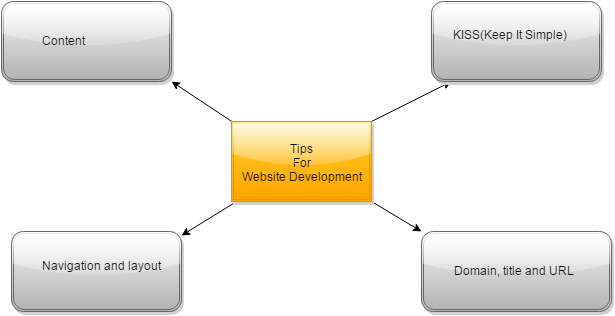A 2017 CNBC survey found that 45% of small businesses don’t have a website. Law firms do not have the luxury of getting by without a website, especially when people are searching for an attorney to help right away. Thus, if you want to be hired, your law firm marketing strategy must include having a website.
Further, in today’s world, having a website is just the bare minimum. You must also employ a good SEO strategy. A solid law firm SEO plan will drive traffic to your site. Without proper law firm SEO, a site won’t place well in search engine results pages (SERP).
Search engines, like Google, look at where people are located to determine what pages to rank in the SERP. To recommend local businesses, search engines take this information from a user’s phone or computer. According to the Moz State of Local SEO Industry Report, 65% of 1,411 surveyed marketers observe a strong correlation between organic traffic and local page ranking. Thus, tailoring your website to target local searchers will help your law firm find clients.

Increase your Firm’s Brand Awareness
As shown above, having a website is half the battle. If your law firm’s website doesn’t place high enough in the SERPs, a law firm with a top placement is going to get the client.
SEO is the ability to populate your website with content that will help a search engine’s algorithms find value in your website and ensure that it appears on the first pages of SERPs. It is essential to appear on the first page because most people don’t look beyond the first SERP. In fact, 67% don’t look past the top five results.
1. Use Long-tail Keywords
To increase your law firm’s brand awareness, include content that uses long-tail keywords – three- or four-word phrases that are specific to your business and your specialty. For instance, if a client needs a child support attorney who can handle single-parent cases, your content needs to include phrases, such as “child support attorney for a single parent.”
2. Properly Format Your Website
Additionally, you can format your website so that you have multiple ways of bringing in traffic. For instance, have different pages for each type of service you offer. Each of those pages should include information about the subject matter and how your firm has handled those types of cases.
Also, give potential clients every possible way to find you and understand that your law firm can help them. You can have a general “Our Services” page, but it should link to pages on specific specialties.
3. Be Location-specific
Law firm SEO is often considered either traditional organic or map. Although both are based on relevancy, map results give greater consideration to location. Most of the time, Google’s local pack (a set of three local-to-the-searcher businesses that fit the search parameters) are also top results on the SERP. If your content is location-specific, Google will place you in the 3-pack when someone searches “(city name) + law firm.”
4. Google My Business Page
You need to have a Google My Business (GMB) page since GMB pages are more likely to be included in Google’s local packs. Law firms at the top of the local pack will have reviews for their page. Be sure to respond to all types of reviews to show Google that you care about what the clients say. The industry term for this is “Reputation Management,” but you should think of it as part of being a trustworthy law firm.
5. Have Good Testimonies Written
Your law firm’s SEO campaign should include content that touts your reputation. A successful law firm website will catch and keep the interest of a potential client.
Testimonials, ratings, and case studies that include long-tail keywords will move potential clients beyond awareness and interest, converting them to actual clients.

Drive Qualified Visitors who are Ready to Become Clients
SEO for law firms has three separate phases. These phases make up a larger part of your marketing funnel.
- Upper Phase: The upper section of the funnel is awareness. This is where potential clients should see your name and know that you’re a prospective law firm for them. Awareness occurs from search results, social media pages, and online ads.
- Middle Phase: The middle of the funnel is evaluation. If the client is intrigued by your firm, then they’ll click your website. They’ll check out reviews, look at other websites, and evaluate your services.
At this stage, your law firm’s content marketing campaign should provide insight and details about the legal questions your potential clients are asking. They need to know that your firm can handle their issue and have handled similar cases successfully.
- Lower Phase: The lower level of the funnel is conversion. This is where the client is ready to retain an attorney. Getting to the conversion phase will not happen without excellent SEO for all three levels of the funnel.
Lower level funnel searches generally produce a map result on Google.
A properly run law firm SEO campaign can help get you listed at the top of the map results so people can quickly get directions to your office.
Offer Value and Get in Front of Future Clients
When done correctly, SEO for law firms is a form of inbound marketing and is customer-centric. Rather than your firm shouting into the void through posting billboards or using a traditional television or radio ad, the customer is coming to you. Thus, if you provide the customer with helpful resources that are easily accessible, your law firm will have better success.
When targeting the upper and middle levels of the funnel with high-quality content, you are providing immediate answers to general legal questions.
When it comes to the conversion phase, you will be answering specific search terms like, “hire a car accident attorney in (city name)” or “call a divorce attorney near me.”
Long-term Growth
Your law firm’s SEO strategy should keep you at the top of the SERP, even when the campaign has ended. To achieve this, you need to regularly update the content and relevant keywords. Take note that a two-year-old case study is not going to be as effective as one that is up-to-date with the most current laws.
Posting updates about new laws or what a recent ruling means for the law going forward shows clients (and Google) that your law firm is current and relevant.
Exponential Return on Investment
Once you start to see success in your SEO campaign, you will benefit from a compounding effect. By optimizing certain keywords, it is likely that you will also attain top listings of relevant terms. Thus, you will get more top search placements.
This results in increased traffic and the acquisition of new clients. Once you place well, all you have to do is maintain your efforts to stay at the top.






